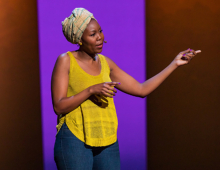Luiz Inacio Lula da Silva
The former president of Brazil says the WikiLeaks founder is a champion of democracy and that the charges against him affect journalists around the world.
The British courts will soon be deciding the fate of the Australian journalist Julian Assange, a man who has been unjustly charged as a criminal. Assange committed no crime. He is a champion of the cause of freedom.
The UK will say whether it will accept or deny the request for the extradition of Assange to the US, where he will face 18 charges brought against him by the government of that country. If he is extradited, Assange, 49, could be tried and sentenced to up to 175 years in prison, the equivalent of a life sentence.
We must keep this outrage from happening. I call on all those committed to the cause of freedom of speech in every corner of the world to join me in an international effort to defend the innocence of Assange and demand his immediate release.
This is the first time in the history of the US that a journalist has been indicted under the Espionage Act for publishing truthful information. The world knows, however, that Assange never spied on the US. What he did was publish documents he received from Chelsea Manning, a US Army intelligence analyst who served in Iraq and Afghanistan. Manning was tried, convicted and sentenced to seven years in prison. She has now served her sentence.
We all know why the US government wants to seek vengeance against Assange. In partnership with the New York Times, El País, Le Monde, the Guardian and Der Spiegel, Assange revealed the atrocities and war crimes committed by the US during the invasions of Iraq and Afghanistan, and the torture to which the prisoners in Guantánamo were subjected.
The world also remembers the terrifying video published by Assange, recorded from a military helicopter, showing US soldiers strafing the streets of Baghdad – apparently for the pure pleasure of it – and killing 12 unarmed civilians, among them two journalists from the Reuters news agency.
In addition to all of these reasons, Brazilians owe an additional debt to Assange. Files published on his WikiLeaks page revealed conversations that took place in 2009 between those who would later be in the Temer administration – which in 2016 deposed the Dilma government – and top officials in the Department of State about questions related to the privatisation of Brazil’s deepwater oil deposits.
It was through reading the documents revealed by Assange that Brazilians learned of the relationship between the man who would later be minister of foreign affairs in the Temer administration, José Serra, and executives in the North American oil giants ExxonMobile and Chevron.
The charge adopted by the Trump administration to justify the allegations against Assange – that he attempted to help Manning hack into government computers – is both dangerous and false.
It is false because the only effort that Assange made was to try to protect the identity of his source, which is both a right and an obligation for all journalists. It is dangerous because to advise sources on how to avoid arrest is something that every ethical investigative journalist does. To criminalise this is to put journalists everywhere in danger.
When Jair Bolsonaro attempted to charge US journalist Glenn Greenwald, for example, at the beginning of this year for exposing the corruption that led to my illegal arrest and imprisonment, the Brazilian government was copying this new and dangerous theory used by the US against Assange.
Under cover of coronavirus, the Tory government is bulldozing basic liberties.
All people and institutions committed to freedom of speech, and not just the mainstream media with which WikiLeaks shared Washington’s secrets, now have an essential task: to demand the immediate release of Assange.
We know that the accusations against Assange represent a direct assault on the first amendment rights guaranteed by the US constitution, which guarantees freedom of the press and expression. We know that treaties between the US and the UK prohibit the extradition of persons accused of political crimes.
The risks that Assange will be extradited, however, are real. No one who believes in democracy can allow someone who provided such an important contribution to the cause of liberty to be punished for doing so. Assange, I repeat, is a champion of democracy and should be released immediately.
(This article first appeared in The Guardian. Luiz Inácio Lula da Silva was president of Brazil from 2002 to 2010)










